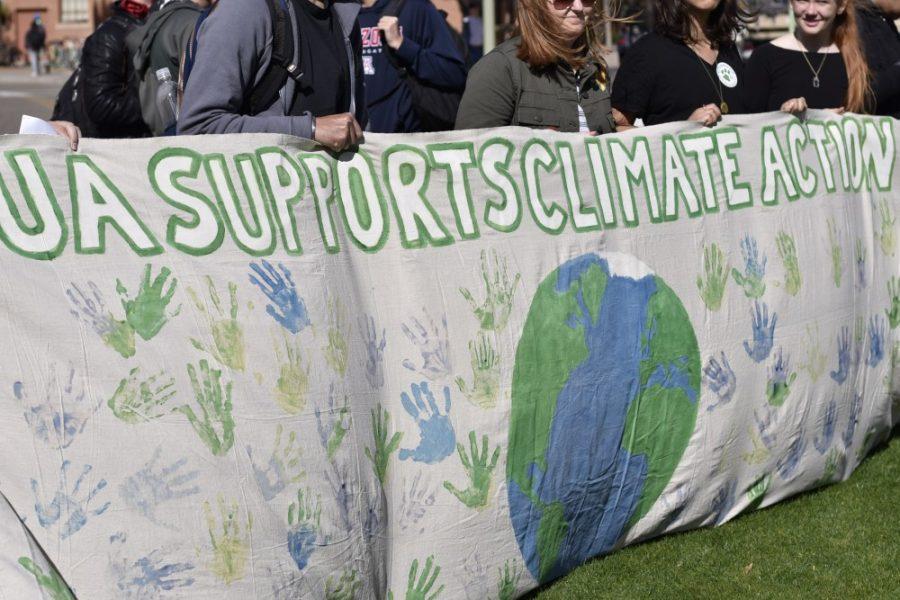University of Arizona President Dr. Robert C. Robbins attended the University Climate Change Coalition, or UC3, last month at the University of British Columbia in Vancouver, Canada, to participate on a panel of university presidents. UC3 announced their Research for Policy Platform, a project seeking to promote and accelerate research on climate change policy.
UC3 is a broad organization that brings together a variety of stakeholders, from university administrators to academics to private business, with the goal of combating climate change. The new policy platform “equips UC3 as a collective to research urgent climate change policy issues and provide recommendations for just and equitable outcomes,” according to a UA news press release.
RELATED: One-of-a-kind Arid Lands Resource Sciences graduate program celebrates 50th anniversary
Director of the UA Office of Sustainability and the operations liaison to UC3 Trevor Ledbetter said the policy platform will help the university “focus in a more comprehensive and collective manner.”
According to Ledbetter, the platform will look to determine what areas in climate change policy should be researched and then give recommendations to university presidents based on that research.
“Let’s say we have a question on carbon pricing and how that may or may not be a solution to a given problem,” Ledbetter said. “[University presidents] want to know more. They want some recommendations on what can be done in that space so they can then use the principles and things that have been passed within the platform to direct their individual institutions and the researchers that comprise the entire coalition, so researchers across different institutions look more deeply into a given question like carbon pricing or other things.”
The platform was just launched, so they do not yet have an idea of what policies will be recommended to Robbins, let alone which policies he might advocate.
Ledbetter said more specific policies should appear in spring 2020 but he would not be surprised if carbon pricing was on the list. Carbon pricing is when a tax or another cost is levied against polluters. It is sometimes called a carbon tax or carbon emissions trading.
“Nothing has been defined yet internally before the launch of the platform,” Ledbetter said. “Carbon pricing is something that you see. There are ways of drilling down into a little bit more on the research side of things. So before the launch of the platform, quite a few different research liaisons from different institutions will be getting together and having conversations and trying to create a brief about carbon pricing and how universities can not only implement it internally, but also try to advocate for broader carbon pricing where it makes sense and where it’s appropriate to do so.”
UA also has a unique capacity within the platform, given its location in the arid desert and its esteemed water resources research, which ranked first in the world, according to Ledbetter.
“We’re number one in the world for water resources research,” Ledbetter said. “We have a variety of other amazing designations, so we bring a really strong research enterprise to the table that we can certainly capitalize upon.”
The platform is in the early stages of its development, Ledbetter said, and it may be a year or longer before any policy is advocated for, let alone implemented.
In the meantime, global warming is expected to increase. A scientific U.N. panel on climate change that convened last year said that as temperatures rise, we may start seeing serious climate crises as early as 2040.
RELATED: UA alumni and Students for Sustainability leaders take on jobs in the sustainability field
Though the size of the coalition may seem unwieldy, and the addition of business interests may strike some as antithetical to effective climate change policy, Ledbetter said he believes the strength of UC3 lies in its many stakeholders.
“We could certainly try to go at this ourselves,” Ledbetter said, “but, in my opinion, we’ve been doing this for the last hundred years, and while some good things do come out of it, I think there’s a lot more gains on all sides when we can come to the table and work together.”
In the meantime, expect a workshop in October that will bring together community members such as elected officials or their representatives to identify what the community needs and how the university might assist.
Follow Claude Akins on Twitter









